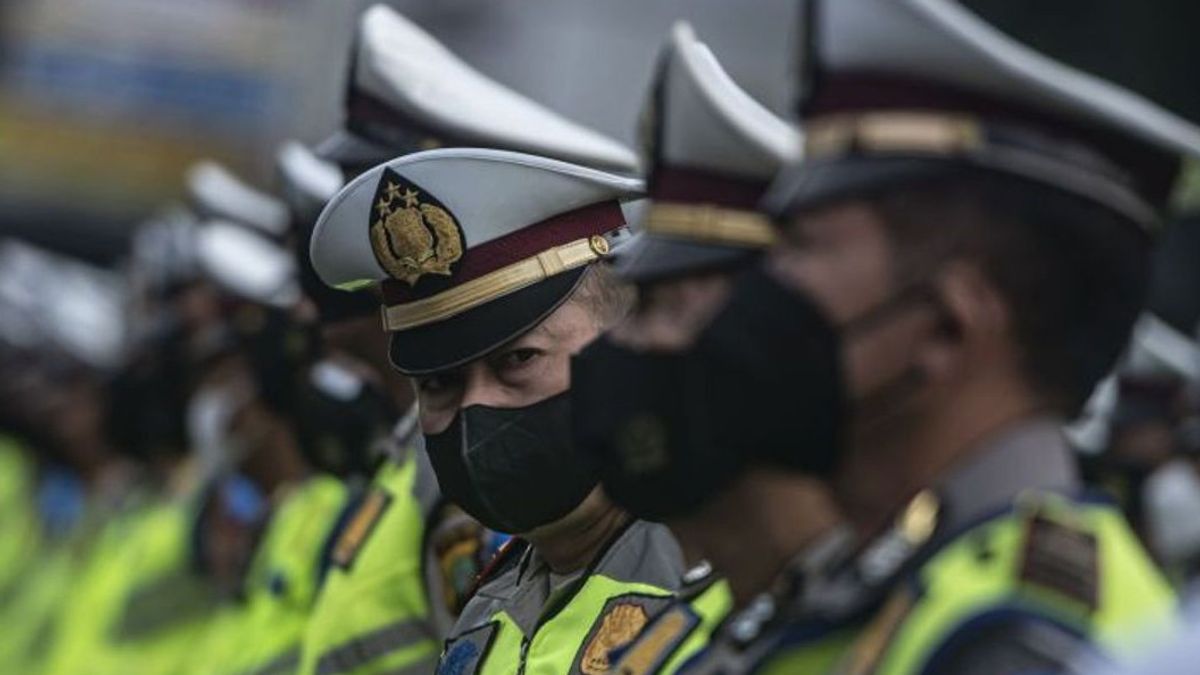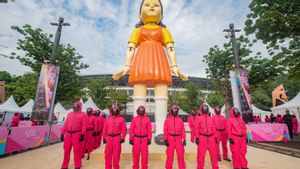JAKARTA The credibility of the National Police as a law enforcement agency has been tested again. After the Ferdy Sambo case, the tragedy of Kanjuruhan, and allegations of drug abuse by high-ranking officers, the National Police have now received public attention for the traffic accident case that claimed the lives of Muhammad Hasya Atallah and Selvi Amalia.
Muhammad Hasya Atallah's family did not accept the police's decision to name the victim as a suspect. Meanwhile, the Mitsubishi Pajero driver who is known to be a retired police officer with the rank of AKBP named Eko Setia Budi Wahono did not get any sanctions. In fact, this retired police officer hit Hasya.
Meanwhile, in the case of Selvi Amalia, the family considers the police's statement to be contrary to the available evidence. They believe that the one who hit Selvi was the vehicle of a group of police officers. Yudi Junadi's family attorney suspects that the car that hit was a black Innova, not an Audi type car.
Researcher from the Institute for Security and Strategic Studies (ISESS), Khairul Fahmitak, denied that instead of trying to show professional performance and integrity, the National Police actually tends to ignore public perceptions of themselves.
"Staying more rigid in procedural matters, just doing SOPs. That's what I think needs to be criticized. For example, about the suspicion. If it's not clear, why rush. This raises public suspicion," Khairul told VOI, Monday (30/1).
"In the end, even though the Police have been working according to procedures, it may be in accordance with the facts, but with a rigid working way, which is in a hurry, the public remains dissatisfied because that trust may have been much reduced at this time," he added.
So, according to Khairul, the best effort to improve public trust is to reform the National Police. Both culturally, which is still thick with nuances of militarism and structurally related to the distribution of authority.
"Let's be clear, the Police are protectors and protectors of the community, the main function is to maintain security and order in society and law enforcement. This means that the approach taken must also be social, not military character," he said.
That is why, he is one of the parties who agree if the Police are under the ministry, no longer under the President.
"If under the ministry, the authority of the police can be limited. The police are only the executor. At this time, the Police themselves are planning, implementing, and the Police are also supervising," said Khairul.
Moreover, for two decades after the reform, the role of the National Police did not go as expected as stated in the 1945 Constitution, namely as a state tool in maintaining security and order, protection, protection, public services and law enforcement.
In fact, it worsens, there tends to be potential for abuse of authority due to the great authority of the Police. So, there needs to be regulatory improvements. This requires support from all elements, including from the government and representatives of the people," Khairul emphasized.
The proposal for the National Police to be under the ministry has actually been echoed for a long time, including by Agus Widjojo when he was still the Governor of the National Resilience Institute (Lemhanas).
Agus feels the need to form a Ministry of Homeland Security. This institution will oversee the National Police institution. Thus, there are many things that can be coordinated regarding security and public order as well as the TNI under the auspices of the Ministry of Defense.
"To realize security and order, there needs to be law enforcement, namely the National Police. It should be placed under one ministry, and the National Police such as the TNI, an operational institution. Operations must be formulated at the ministerial level by a political institution, from which policy formulation is made, defense by the TNI, and security of order by the Police," he explained as quoted by Antara.
However, the proposal did not receive a positive response from a number of members of the DPR. Member of Commission III of the DPR Habiburokhman assessed that placing the Police under the ministry would make the bureaucracy more complicated.
"The DPR has carried out the supervision of the Polri's performance, so there is no need for a new ministry to oversee the police," said the Gerindra Party politician.
Another member of Commission III, Arsul Sani, is also worried that there will be political interests if the Police are not under the President.
In our governance, the cabinet is also drawn up from various political parties and non-party circles. This is something very strategic and even very sensitive," said the politician from the United Development Party.
Finally, a number of DPR members hoped that the National Police Chief would make independent efforts to improve public trust. However, the image of the police also has an impact on the reputation of the government.
National Police Chief General Listyo Sigit Prabowo has actually announced that he will make the National Police a Precision institution, namely: predictive, responsible, and transparent with justice. Having a meaning so that every member of the police is able to carry out their duties quickly and precisely, responsively, humanely, transparently, responsibly, and fairly.
Listyo Sigit is also committed to being ready to take corrective and evaluation steps. Improvements in the structural field, improvements in the instrumental field, and of course the most important thing is in the cultural field.
However, a number of circles considered it to be still a slogan. Implementation in the field has not been fully proven. Member of Commission III Adies Kadir, as has been reported by VOI, did not deny.
"If we look below, the levels of directors, police chiefs, such as small kings in the regions, sometimes we don't just call, WA (whatsapp) is not answered. Behaviors like this have begun to show that their behavior is extraordinary like kings in the regions," he said.
Of course, the process is not an easy matter. It is difficult to change the character and culture in an instant. It takes continuous supervision so that cultural reforms run as expected. General Listyo Sigit, in his Instagram in October 2022, likened it to a gold refining process.
The National Police is currently being styled and filtered to become pure 24 carat gold. We all must be able to adapt to the existing conditions so that we sit equally low and stand equally high, let's all work together in dealing with the nation's situation, especially in the field of Kamtibmas," the National Police Chief added.
The English, Chinese, Japanese, Arabic, and French versions are automatically generated by the AI. So there may still be inaccuracies in translating, please always see Indonesian as our main language. (system supported by DigitalSiber.id)








